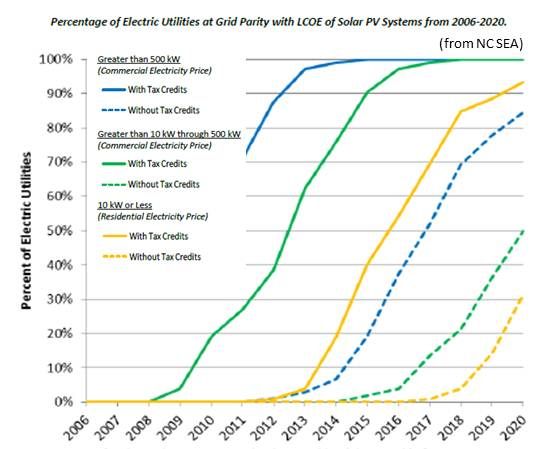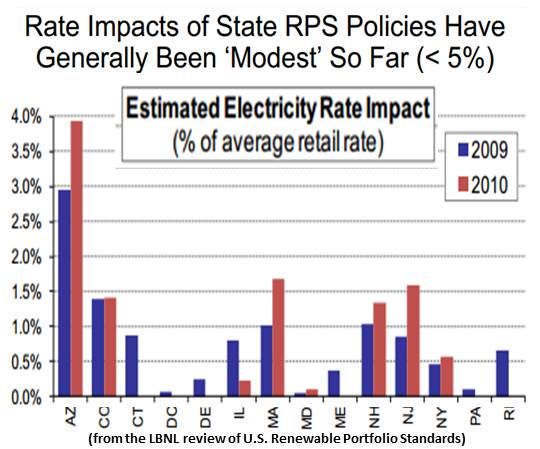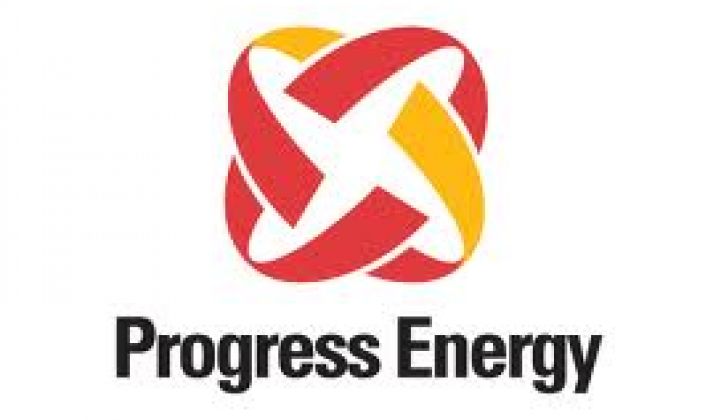A recent study of the impact of state renewable portfolio standards (RPSs) found they are responsible, on average, for a less than 5 percent increase in utility bills. Yet opponents of renewables continue to attack RPSs with the charge that they raise customers’ power prices.
In North Carolina, where renewables advocates are trying to show the rest of the Southeast what is possible, Progress Energy Carolinas (PEC), Inc., a newly merged subsidiary to Duke Energy (NYSE:DUK), may become a case-in-point.
On the heels of an unusually big rate increase request made by PEC to the state’s Utilities Commission (NCUC), North Carolina Sustainable Energy Association (NC SEA) just released a report on how much the state’s Renewable Energy and Energy Efficiency Portfolio Standard (REPS) and other renewables and efficiency programs actually cost ratepayers.
“None of Progress Energy's proposed 11 percent overall increase in the base rate is attributable to North Carolina's successful clean energy policies,” NC SEA Executive Director Ivan Urlaub said. “This year's cost to Progress' customers for the often-derided REPS policy actually went down $0.14 per month from last year.”

The costs to PEC’s residential customers for renewable energy and energy efficiency spending, which are recovered in separate dockets at the NCUC, include 1) a flat fee of $0.41 per month for the REPS; 2) an average $2.74 per month paid to small power producers to purchase renewables-generated electricity, a rate set by the NCUC; and 3) an average $3.84 per month for demand-side management and energy efficiency (DSM/EE) programs.
“We are in an environment in which a lot of folks are trying to figure out why their bills are going up,” explained NC SEA Regulatory Analyst Jim Kennerly. “This PEC rate increase is pretty significant for North Carolina and we are trying to point out it is not related to clean energy.”
The rates proposed by PEC would increase residential customers bills an average of 14.2 percent.
Often, Kennerly added, “folks look at something that is new like renewable energy or energy efficiency and think it must be why the rates are going up.”
NC SEA Director of Government Affairs Betsy McCorkle was blunt: “We anticipate an attempt to freeze or repeal North Carolina’s highly successful REPS. Opponents have suggested it is partly responsible for the sharp rate increases proposed by PEC. As the analysis shows, that is not the case.”
If the PEC rate request is approved, NC SEA reported, the average residential customer bill will have risen $45.87 per month since 2001 and $38.88 of that, 85 percent, would be from PEC investments in new conventional generation and infrastructure that “primarily support coal, natural gas and nuclear power.”




